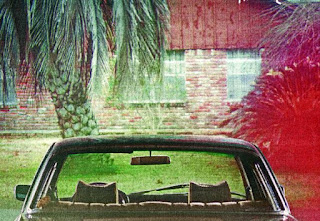The Grand Budapest Hotel Review
Grander than grand.
Film review by Isaac Handelman
It’s not easy for a film to keep a silly smile pasted on its viewer’s face for the entirety of its duration, but Wes Anderson’s weird, wacky, and wonderful The Grand Budapest Hotel does just that. With Budapest, Wes Anderson, a director known for his offbeat style and unique compositional techniques, crafts a marvelous cinematic adventure, chock full of memorable characters and packing ingenuity at every turn.
Budapest is really a story within a story within a story, but for the sake of simplicity, suffice to say that the film centers on Monsieur Gustave (Ralph Fiennes), the beloved concierge of the highly esteemed Grand Budapest Hotel, who takes a young lobby boy named Zero (Tony Rivolori) under his wing as a protege of sorts. In a dark turn of events, Gustave is framed for the murder of one of his guests, and finds himself the target of the authorities as well as the greedy family of the victim who hope to secure their deceased relative’s fortune for themselves. This incident sets in motion an adventure with a surprisingly large scope, given that the film’s title implies a confined setting, in which Gustave and Zero must work together to clear the concierge’s name whilst staying a step ahead of pursuers Inspector Henckels (Edward Norton) and assassin Jopling (Willem Dafoe).
The film’s posters highlight its gargantuan cast full of A-list actors and more Anderson-film-regulars than can be counted. Surprisingly, the nimble screenplay and thoughtful direction by Anderson ensures that almost every member of the cast is memorable in his or her own distinct way. Each character’s personalities feel distinct, and even those actors whose roles are relegated to cameo appearances (Bill Murray and Owen Wilson, for example) manage to make their roles memorable. All of the big name actors do great in their respective roles, with the standouts being Fiennes’ delightfully fiendish attitude and penchant for pitch-perfect timing and Dafoe’s hilarious physical acting in a role that gives him just a few lines of dialogue.
However, the truly impressive addition to the roster is Tony Rivolori, a newcomer who, against all odds, manages to hold his own in a cast full of Hollywood’s best. Rivolori possesses remarkable chemistry with Fiennes, and his facial expressions and reactions to other characters are amusing to behold. By the film’s close, Zero and Gustave have developed a believable, brotherly bond, thanks largely to the strong performances of the two leads.
 This being a Wes Anderson film, plenty of eye candy exists to behold in The Grand Budapest Hotel. The director’s compositional flair is ever-present, with almost every shot showcasing some memorable quality, whether it be stunning symmetry, color contrasts, actors’ placements within a shot, or some combination of these elements and more. Budapest is often just as fun to look at as it is to watch.
This being a Wes Anderson film, plenty of eye candy exists to behold in The Grand Budapest Hotel. The director’s compositional flair is ever-present, with almost every shot showcasing some memorable quality, whether it be stunning symmetry, color contrasts, actors’ placements within a shot, or some combination of these elements and more. Budapest is often just as fun to look at as it is to watch.
The stylish visuals come accompanying, and not at the expense of, an engaging narrative with roots in classic caper tales from Hollywood’s days of old, full of twists and turns galore. The on screen mayhem takes occasional turns for the dark, but through even its most violent scenes, Budapest retains a jubilant tone, imbuing even its most gruesome scenes with a kind of inexplicable but nonetheless present, hyper-kinetic gallows humor, ensuring that the smiles will never be wiped from viewers’ faces. The punchy score complementing all of the transpiring mayhem surely assists with this feat.
By the time it grinds to a halt, The Grand Budapest Hotel has covered some profound emotional ground, exploring human connections through the places people inhabit, and the idea coming to peace with a less-than-desirable outcome. But while its wheels are turning, Budapest never slows down to grind any of these notions into viewers’ heads; this fact makes it all the more impressive that the film is able to convey such messages.
Budapest will undoubtedly scare some viewers off with its bizarre sensibilities and unrelenting quirkiness. However, those itching for an example of unconventional filmmaking at its very finest need look no further. The Grand Budapest Hotel is triumphant in marrying visual beauty with a compelling narrative boasting emotional depth, all while introducing viewers to a brilliantly memorable band of characters. Wes Anderson must be a strange guy; thank goodness for that.





Comments
Post a Comment